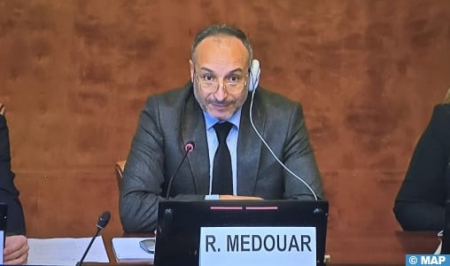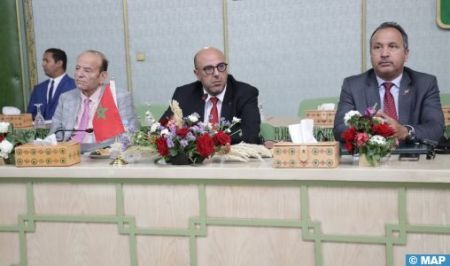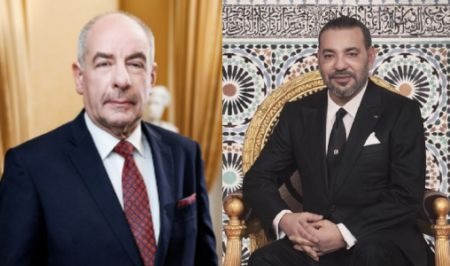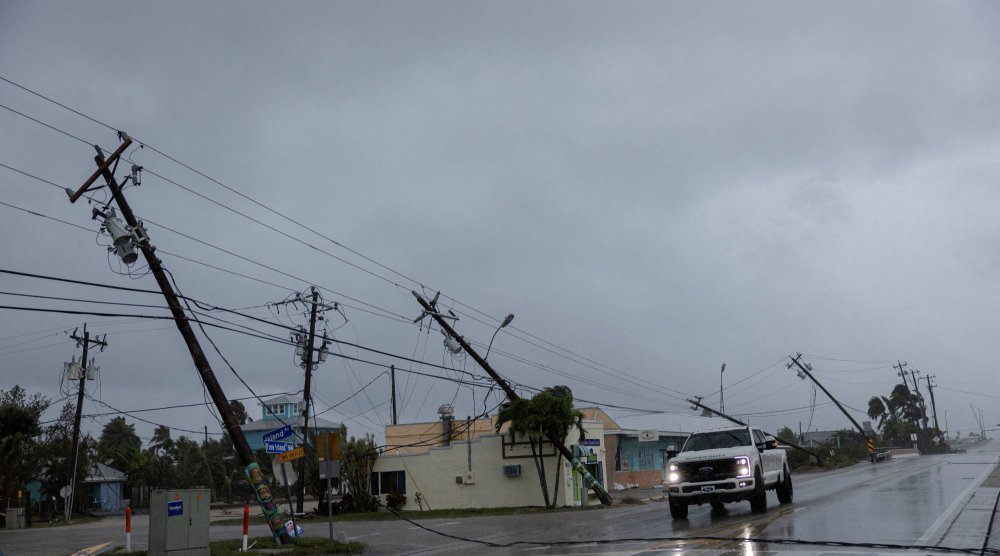Speaking at a Human Rights Council (HRC) expert seminar on the promotion and protection of economic, social, and cultural rights in anti-corruption efforts in the context of recovery from the coronavirus disease (COVID-19) pandemic, Mr. Medouar stressed that Morocco, aware of the challenges presented by this nexus, has adopted a series of actions and measures to prevent and combat corruption with a human rights dimension.
In that regard, he cited the implementation of the first program of the National Anti-Corruption Strategy. This program, which focuses on “improving services to citizens,” aims to simplify administrative procedures and guarantee citizens’ right to submit complaints and grievances about certain corruption practices that affect their enjoyment of certain rights, such as the right to health, the right to education, and the right to live in a healthy environment.
The Vice President of the INPPLC also referred to the adoption of Law No. 37.10 on the protection of victims, witnesses, experts, and persons reporting crimes of corruption, embezzlement, abuse of influence, and others, as well as Law 31-13 on the right of citizens to access information from various public services and institutions.
Moreover, the INPPLC has always emphasized the close relationship between the prevention and fight against corruption and the defense of human rights, either through the direct treatment of this relationship in its annual reports or in a more global perspective through the report it published on the theme of “Citizen Engagement,” one of the vital areas within the Forum’s remit, he said.
According to him, the issue of citizen engagement rests on two fundamental pillars. The first one being the need to establish a political and institutional landscape that offers the necessary conditions to develop good public policies with a positive impact on citizens, including those related to the fight against corruption.
As for the second pillar, it requires that citizens are aware of the dangers of corruption for individuals and society, aware of their rights and duties, and able to shoulder their responsibilities by rejecting and resisting acts of corruption, he added.
The seminar, which was opened by Morocco’s Ambassador and Permanent Representative to the UN Office in Geneva, in his capacity as Chairman of the HRC, aims to deepen understanding of the link between corruption and the realization of economic, social, and cultural rights.
Held in accordance with HRC resolution 53/17, the event provided an opportunity to share best practices, examine past achievements and challenges, and explore innovative solutions to ensure that anti-corruption efforts are more effectively linked to the protection of human rights, particularly in the context of post-pandemic recovery.











Comments
0